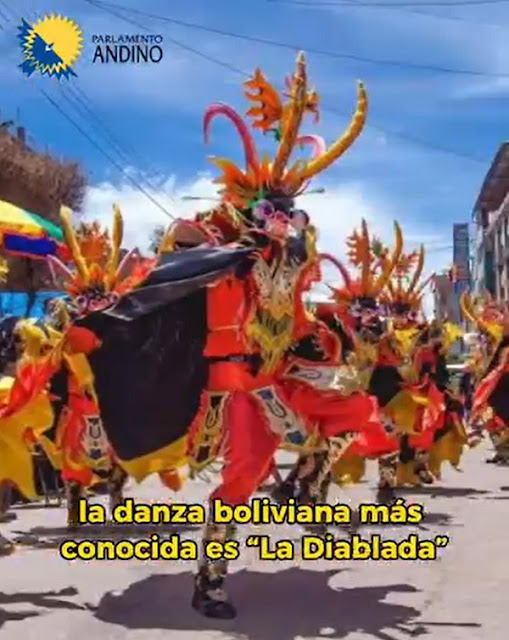The president of the Departmental Committee of Ethnography and Folklore (CDEF) is demanding the removal of incorrect images used in the promotion of the Oruro Carnival by the Andean Parliament based in Peru. The publication in question utilized images of the "diablada" dance from the Peruvian region of Puno.
Andrés Rocha, president of the Departmental Committee of Ethnography and Folklore (CDEF), announced that he will send a letter to the Minister of Cultures, Decolonization, and Depatriarchalization, Sabina Orellana, to file a complaint about a publication by the Andean Parliament based in Peru. The publication in question used images of the "diablada" dance from the Peruvian region of Puno to promote the Oruro Carnival.
Rocha emphasized that the CDEF's role is to protect and monitor videos produced by various local, national, and international institutions. On this occasion, a video was received, disseminated on December 28, 2023, using images unrelated to the Oruro Carnival.
Letter Demands Removal or Replacement of Incorrect Images
In response to this situation, the organizers under Law 602 decided to draft a letter addressed to the Andean Parliament, demanding the removal or replacement of incorrect images with authentic images of the Oruro Carnival, as it has been declared Intangible Heritage of the Andean Community.
Complaint to be Taken to Higher and International Authorities
On January 10, the letter was sent to the Minister of Cultures and Decolonization, Sabina Orellana. She will take this complaint to higher and international authorities since the Andean Parliament is headquartered in Lima, Peru.
Willingness to Provide Documentary Support
"Perhaps international institutions are not aware of this material, but we are prepared to provide documentary support if necessary. We are also willing to collaborate with the Ministry of Cultures to prevent such errors," he stated.
Bolivian Dances Recognized by UNESCO
Rocha also stated that Bolivian dances are recognized by UNESCO, which can be historically demonstrated. On the other hand, Peruvians claiming ownership of the carnival cannot support their claim; some even acknowledge that these dances originate from Bolivia.
Oruro Carnival as Intangible Heritage
The letter mentions that on May 18, 2001, the Oruro Carnival was included in the Representative List of the Intangible Cultural Heritage of Humanity, and on November 4, 2008, it was incorporated into the action plan for its safeguarding. Additionally, in 2012, the Andean Parliament recognized the Carnival as Intangible Heritage of the Andean community, with its 48 folkloric groups and 20 dance specialties.
CDEF's Commitment to Avoid Future Errors
The Departmental Committee of Ethnography and Folklore expresses its willingness to collaborate to prevent such errors in the future and to promote necessary information. They also extend greetings to the authorities and are ready to work on upcoming cultural activities in support of Bolivian folklore


No comments:
Post a Comment